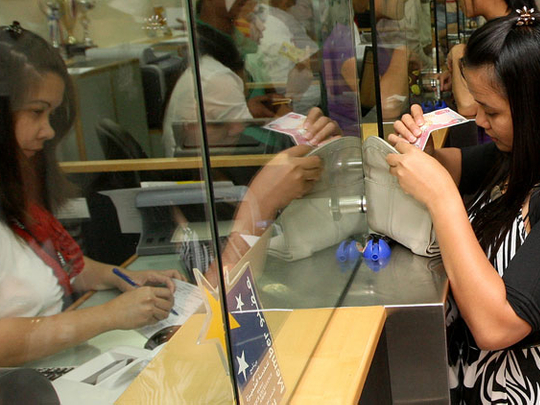
Dubai: Every year, a growing number of people leave their homes and families behind in pursuit of the proverbial greener pastures. As of the latest count, approximately 258 million individuals are living outside their country of birth, and an estimated 2.7 million have found their second home in the UAE.
People move overseas for many reasons, and chief among them is the desire to get out of poverty and provide financial support to their families by sending money home.
But not everyone who lands a job overseas ends up in the six-figure salary range. Hundreds of thousands of them are stuck in menial jobs that pay only Dh500 to Dh 5,000 per month. These are the expatriates working as labourers, janitors, secretaries, receptionists, waiters and waitresses.
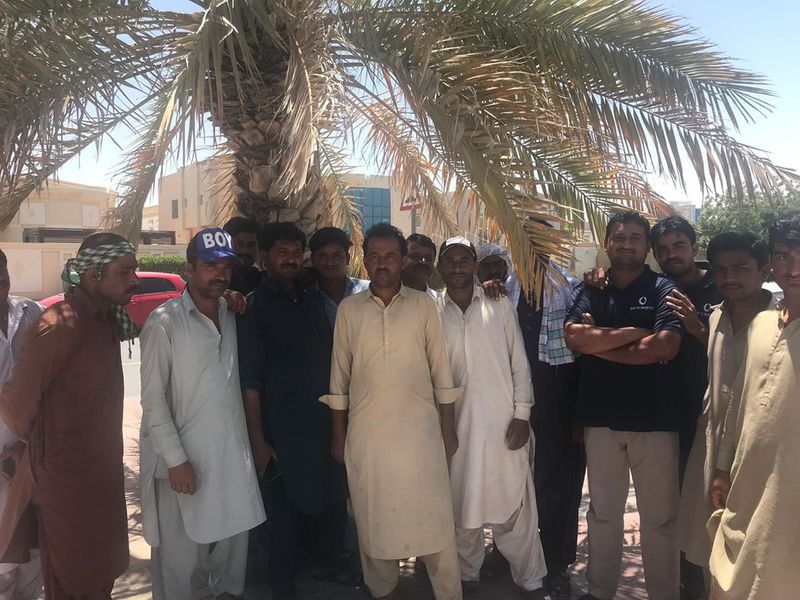
Yet, somehow, despite how little cash many of them may get every payday, some are still able to turn their lives around for the better.
- 258 million individuals are living outside their country of birth
- 2.7 million of them have found their second home in the UAE
Part of the reason is that the UAE dirham is pegged to the US dollar and the income earned by expatriates gets a purchasing power boost once they’re sent to destinations with weaker domestic currencies.
And with the American greenback appreciating against both developed market and emerging market currencies, a huge number of migrant workers in the UAE get to enjoy more remittance strength.
2. 7 million
numbers of expatriates living in the UAEThe higher the US dollar gets, the higher value in their local currency foreign workers transfer back home.
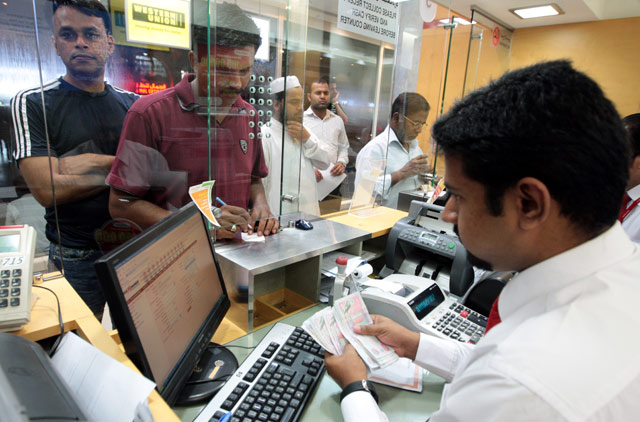
in most recipient countries. In India, remittances are larger than the earnings from IT exports. Image Credit: Ahmed Kutty/Gulf News Archives
Here's how expats in the UAE were able to build their dream homes.
From office boy to landlord
Ajit, a Bangladeshi national, started working as an office boy in Dubai in 2005. He brought home Dh1,500 paycheque each month.
Today, about 14 years into his migrant life in the UAE, the father of two is a proud owner of a parcel of land in his hometown, and he is close to finishing his four-storey building.
Once completed, he intends to rent out some commercial spaces to tenants in his hometown.
Part of the money used in the ambitious project was raised through a loan he took out from a local bank in Dubai, but he would not have been able to progress the project sooner, if not for the favourable exchange rates.
With his home currency trading poorly against the US dollar, Ajit is able to send nearly 23,000 Bangladeshi takas per Dh1,000 dirham.
“Before, when I was just starting out in Dubai, one dirham was only equivalent to 17 or 16 takas. Now, it has tremendously gone up in value, and my capacity to send money home has likewise strengthened,” the expat said.
A domestic help with 10 times more her peer's salary back home

Nanu Thapa, 46, from Nepal, has been living in Dubai for the last 11 years. She earns a salary of Dh2,000 and in Nepalese rupee (NPR), this translates to NPR 60,700.
She works as a domestic help for a European household. Back in Nepal, a domestic worker barely earns NPR5,000 to NPR6,000. So you can imagine how lucky she feels to be earning a package ten times more than her counterpart in Nepal.
Dh2, 000
Monthly salary of Nepalese domestic helper Nanu Thapa, equivalent to NPR60,700, about 10x the salary of her local counterpartsSure there is hard work here, but take this: Everything she earns goes into her pocket. Besides her personal expenses like toiletries and clothes shopping, the rest is taken care of by her employer.
Whether it is her travel expenses or medical, she pays nothing else for herself.
So what has she done with all this money?
“I send home everything. My father takes care of my finances and he is allocating them to meet some major expenses. For example, my older daughter who is 23 years of age is studying nursing. Nursing is a very expensive course in Nepal. I pay NPR 30,000 a month for her fees.
"My younger daughter is in high school and I am taking care of her education as well. Besides, I send my parents money so they can lead a good life.”

Impact on Nepalese rupee
According to Abdel Kareem Alkayed, country head of UAE Exchange, the ongoing Indian elections is likely to impact the Nepali rupee are said to have an impact on the Nepali rupee.
“The decline of the Nepalese rupee (NPR) can be attributed to the fact that the currency is pegged against the Indian rupee (INR), which has had a very turbulent 2018 due to the rising crude oil prices. Nepal's widening trade deficit has also weighed in heavy on its depreciating currency,” noted Alkayed.
“On the upside, the recent decline of the currency can help boost the local economy, as tourism from western countries is expected to rise along with an increase in remittances sent by Nepali diaspora around the world. The upcoming Indian general elections and its impact on the INR could also impact the kingdom's currency.”
Over the years, a number of currencies in Asia have plummeted against the American greenback. The rupee alone suffered a massive erosion in value in the last two decades, particularly last year, when it plunged to fresh record lows and breached the 20 barrier versus the UAE dirham, owing in part to the downward spiral of Indian equity markets.
From an economic perspective, the gyrations can impact the import industry in these countries. A struggling domestic currency means it will be more expensive for the local residents to buy imported goods, but for the expatriates, it means they get to send more money out of the same amount of salary.
“The lower exchange rate will also boost [domestic] tourism. As for [the] expats, they stand to gain on the amount they are remitting back home due to favourable exchange rates,” Sudhesh Giriyan, COO of Xpress Money, said earlier.
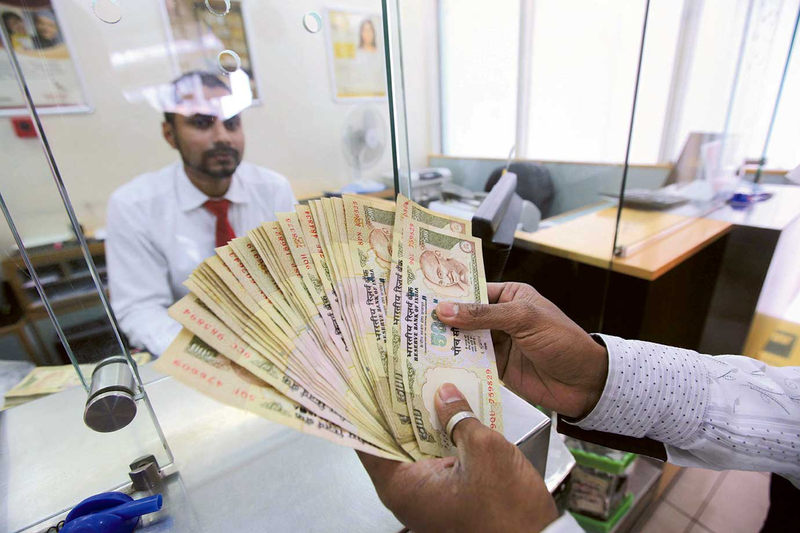
Remittance outflows
As home currencies fall, remittance outflows conversely rise.
$ 529 b
about Dh1.9 trillion, is the value of cash remitted by migrants from around the world in 2018: World BankGlobal money transfers have increased in volume over the years. According to the World Bank, the value of cash remitted by migrants from around the world to low- and middle-income countries jumped by nine per cent to $529 billion (Dh1.9 trillion) in 2018, and nearly half of that landed in five countries: India, Philippines, Egypt, China and Mexico.
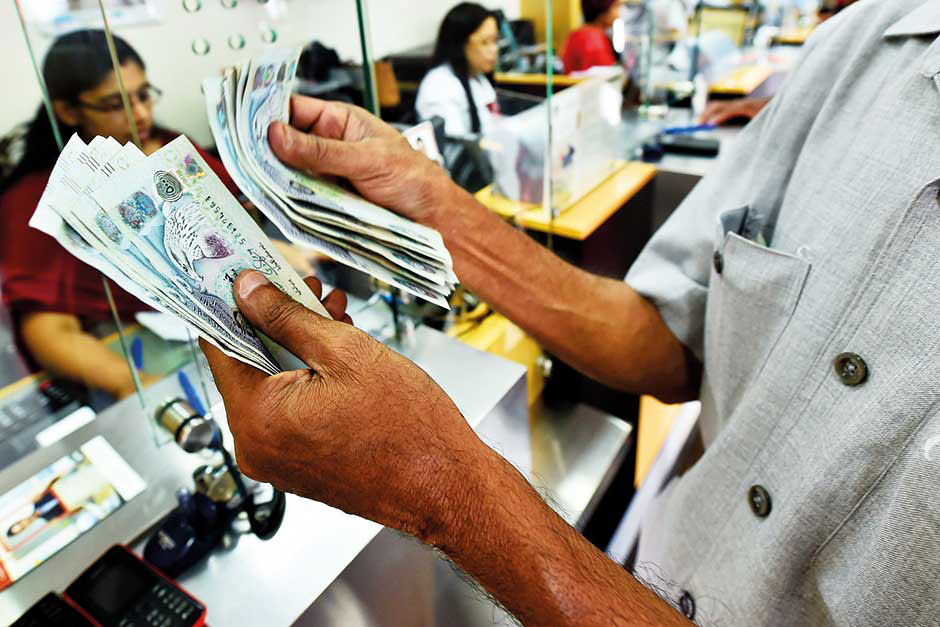
Within South Asia, including Ajit's home country, local currencies have been depreciating three to six per cent every year.
Among the worst hit is the Indian rupee, which nosedived by 50 to 60 per cent in the last 20 years, according to retiring President of UAE Exchange Sudhir Shetty.
“In 1991, for example, when I came to the UAE, a dirham fetched five Indian rupees (Rs5). Today, it is hovering around 20. The currency has dipped four folds,” Shetty said.
“Over a period of time, these currencies have depreciated as they needed to adjust to the inflation prevailing in these countries. The biggest beneficiaries of course have been the non-resident Indians. Besides taking advantage of any personal salary gains, they have tremendously benefited from their currency devaluation,” he added.
_resources1_16a4505db05_original-ratio.jpg)
Lives improved
And, as the currencies continued to fall against the dirham and US dollar, people’s lives have improved in the past years.
“Expats living in the UAE, for example, [have seen] their saving potential increased compared to what is back home. If this was not the case, they would not be living here,” said Shetty.
“Their increased purchasing power has also helped them lead a better life and offer better opportunities for loved ones. Education, for example, is something that blue-collar workers overseas have focused on giving their loved ones. Their first priority is educating children and helping them build a better life for themselves.”
Doubling the salary
Aniya Barcelona left a government office job in the Philippines that paid approximately Dh900 in 2013.
When she landed in Dubai, she managed to secure a rank-and-file role that offered Dh2,500 per month, more than double her previous income back home.
Her salary as a social media executive gradually increased over the next few years until it hit Dh5,000. At current exchange rates, that would make her earn about 70,000 pesos back home — a pay that’s not even enjoyed by an entry-level chief financial officer (CFO) in the Philippines.
Dh5, 000
Monthly salary earned in the UAE by Filipina Aniya Barcelona, a social media executive, equivalent to about Php70,000And since she makes it a point not to touch more than half of her income every month, she’s managed to build up a saving of 100,000 pesos in the last three months alone.
All the hard work, buoyed by a depreciating peso, paid off. Recently, she completed the renovation of her house in the Philippines, where her mother currently lives in.
“The better exchange rates actually help. Back when I was just starting a career in the UAE, in 2013 or 2015, the peso would fetch only 11 or 12 per dirham. Now, it has climbed to 14 and, at times, it goes up to nearly 15,” she said.
“This has really helped me improve our living conditions and at the same time support my parents financially. Strictly sticking to a saving habit also helped a lot,” added the 27-year-old Filipina, who confessed to have developed a habit of meticulously writing down every single expense on a monthly basis.
“I make it a point to save 60 to 65 per cent of my salary and this goes into my personal savings back home. I also manage to set aside money here for emergency, just about Dh200 to Dh300 per month. It can grow in value over time,” she added.
However, as to whether Barcelona and her compatriots in the UAE will continue to enjoy higher remittance power over the next few months, it remains to be seen. Some experts can’t seem to agree at this point whether the short-term outlook holds much optimism for the currency, which is pegged to the Indian rupee.
More currency declines, more savings
Another Filipina expat Raquel Contrella, 22, who came to work in the UAE seven months ago, said she is saving far more in the UAE than she did back home.
She has been employed in the administration section of a fitness club the past four months. Contrella cannot thank her stars enough for her job and the opportunities she has been given.
The 22-year-old who earns Dh2,000 a month said she has managed to save Dh5,000 in the last four months she has been employed in the UAE.
“In Philippine peso, this amounts to 70,000. I could not have imagined making this kind of money back home,” said Contrella who hails from the province of Batangas in Luzon.
“We are five siblings. My father suffers from a stroke and barely manages to run a small business. My mother works as a tax collector in the Municipality and together they earn 5,000 pesos a month. This is barely enough. My younger siblings are in university and high school.
"My older siblings work in Dubai and together, we contribute to the running of the household. Our income and savings go towards paying the university and school bills, as well as towards taking care of our parents.”
Outlook
Expatriates from other countries have also vouched for the positive impact of the stronger US dollar on their purchasing power. Here’s a closer look at how they are taking advantage of the favourable exchange rates:
In the meantime, it’s best for expats to take advantage of the favourable exchange rates today rather than wait for further declines. Vijay Valecha, chief market analyst at Century Financial, said the currency could be range bound in the near term and it is likely to fluctuate in the 27.90 to 31.90 range for the remainder of the year.
“Expatriates can send their money home as the currency is not expected to depreciate further against the UAE dirham,” said Valecha.
Future businesswoman
Tabitha Wanjiru, 30, a Kenyan expatriate, is considering starting a business back home. She would have never imagined this six years ago when she contemplated leaving her hometown which is close to the capital, Nairobi.
Wanjiru set foot in the UAE six years ago and has been working in the housekeeping industry ever since. In 2013, when she came here, a dirham fetched around 25 Kenyan shillings.
Today, a dirham is valued 27.52 Kenyan shillings. While it may not seem like a huge currency dip, her life, nevertheless, has tremendously improved in the last six years.
Her monthly income is close to 22,000 Kenyan shillings a month, a salary she cannot imagine earning back home. "It is impossible for my kind of job," she says.
22, 000
equivalent in Kenyan shillings of the UAE salary of Tabitha Wanjiru, 30, a Kenyan expatriateWanjiru’s salary is helping pay her daughter’s school fees in Kenya. She is also supporting her 75-year-old parents.
“My husband also works here in the facilities management sector, earning around Dh2,000 a month. Together, we save, and spend our income on our parents and daughter.”
“Life is hard in the UAE, but it is still better than living and working in Kenya.”
“The currency depreciation has helped me save more.”
A barber and his dream house
Mohammad Shoib, 30, a Pakistani expat who works as a barber in Al Barsha earns Dh3,000 a month. He is happy with this pay as it fetches him over a lakh Pakistani rupees (PKR) a month (A UAE dirham fetches 39.5 PKR).
“I came to work in Dubai six years ago. I have saved quite a bit and built my dream house. It is a duplex five-bedroom villa in Karachi. My parents live there. We are three siblings and together we take care of our parents. We all work outside Pakistan as we wanted a better life for our parents. Thanks to the savings we have made so far, our parents are enjoying basic comforts.”
Another Pakistani expat Bhakt Ali could not agree more. Ali, who works as a domestic help for a Saudi family in Al Barsha barely earns around Dh900 a month.
Yet, he says this income is far better than what he would earn back home in Pakistan.
Back in Pakistan, I was earning PKR 50,000 a year. Now I am making PKR36,000 a month. Thanks to this money, I am able to educate my children and take care of my wife and aged parents.
“Back in Pakistan, I was earning PKR 50,000 a year. Now I am making PKR36,000 a month. Thanks to this money, I am able to educate my children and take care of my wife and aged parents. I have three children in grade 8,6 and 4. It is expensive educating them in Pakistani but I still want to do it. I don’t want my children to be uneducated like me. I want to give them a better life.”
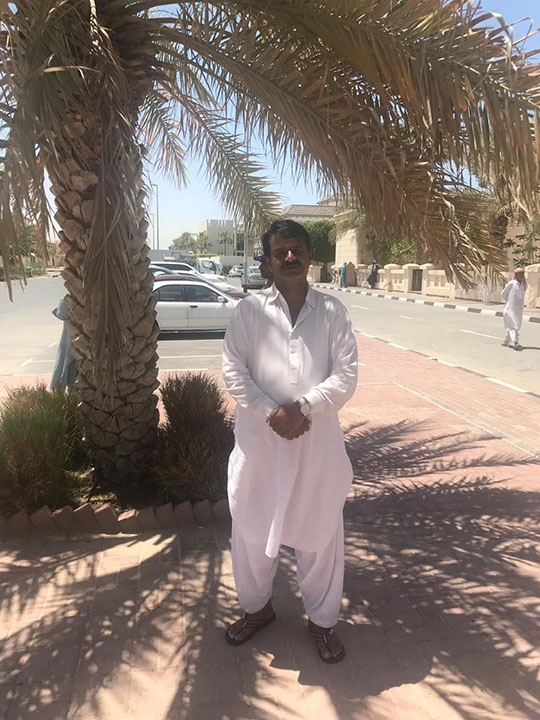
According to various analysts the PKR is likely to stage a recovery against major currencies, including the dirham, in 2019.
However, it will be possible only if it secures the International Monetary Fund (IMF) package to overcome dwindling foreign exchange reserves, among other issues. Some analysts predict the PKR to touch 40 against the UAE dirham if the country does not secure funding from IMF.








